Our research suggests that with proper management and strategy, evolution can help corals adapt to rising temperatures.
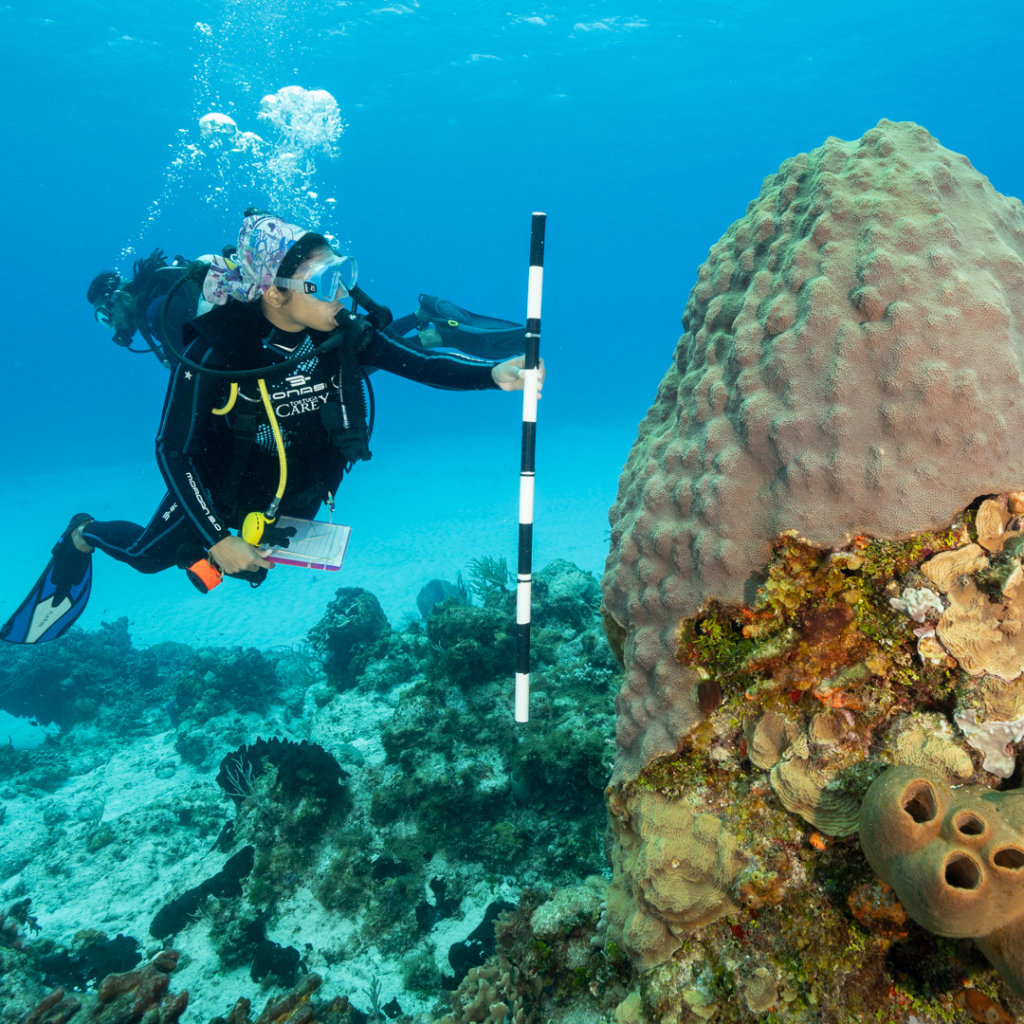
Featured Story
Learn the Science
Read about the eco-evolutionary simulations we used to examine coral adaptation to warming across reef networks in the Caribbean, the Southwest Pacific, and the Coral Triangle. We found that evolution can be critical in preventing extinction and facilitating the long-term recovery of coral communities in all regions.
The Challenge
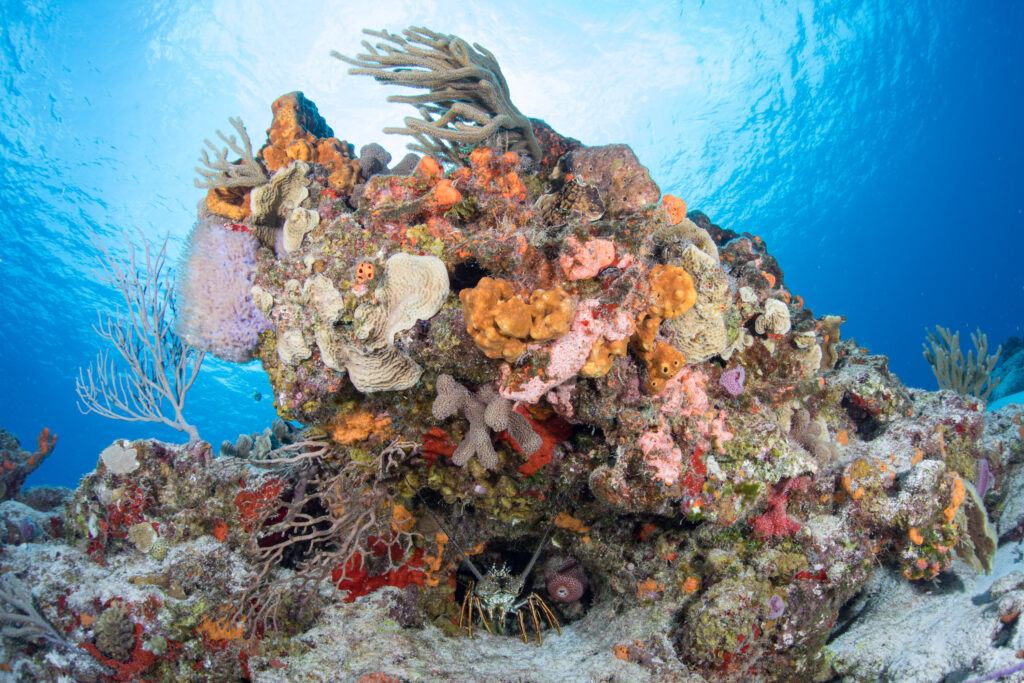
Corals are threatened by climate change, in addition to overfishing, pollution, and other stressors.
Almost half the world’s reefs have been lost since 1950 and all those remaining are projected to be threatened by 2050 if the conditions and trends continue. The humanitarian and biodiversity consequences of total coral reef collapse would be catastrophic, impacting more than a million marine species, local economies and food security for countless coastal communities.
Collectively, we need to dramatically reduce global emissions. But what else can we do to ensure coral reefs stay healthy and continue to provide benefits to wildlife and people?
Our Solution
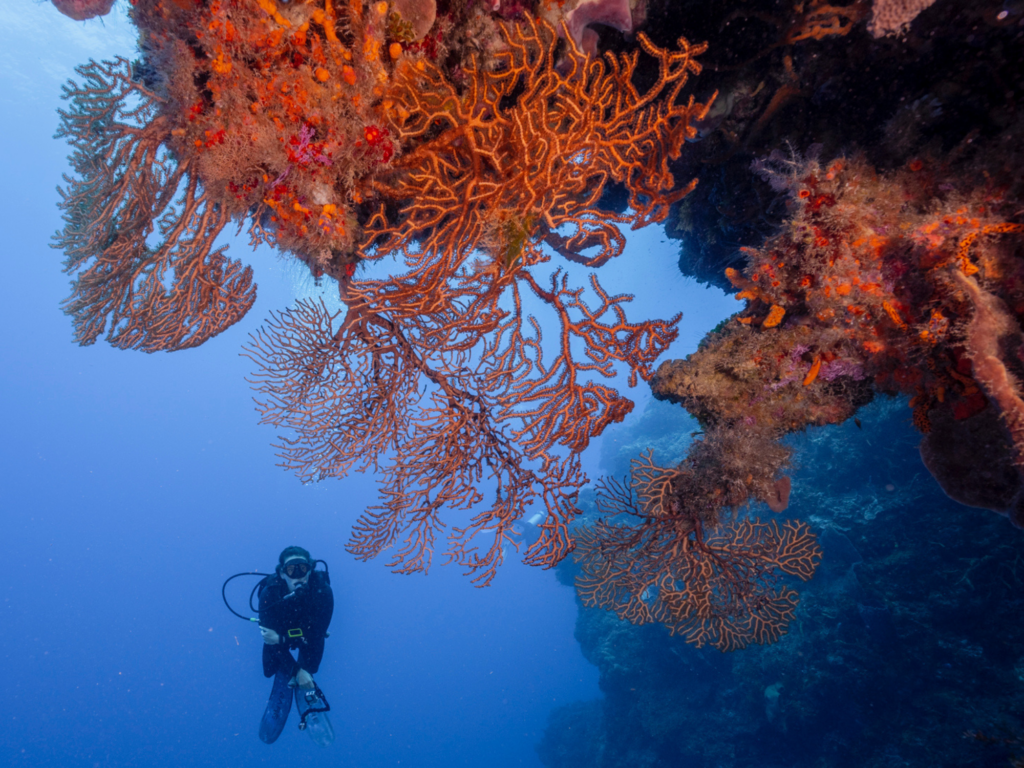
Our research suggests sufficient diversity of corals in strategic locations, then coral reefs can adapt to and recover from the effects of climate change.
With the help of our partners, CORAL launched an initiative to understand the adaptive potential of coral reefs under different future conditions. Together, we formed the Modeling Adaptation Potential (MAP) Project to improve the scientific understanding of how coral reefs can adapt to rapid change. The project focused on building a powerful mathematical model to simulate different future scenarios for coral reefs, funded by the Gordon and Betty Moore Foundation.
We explored if evolution itself could help coral reefs survive and recover from the effects of climate change, what we could do to maximize successful coral adaptation, and how our findings might influence management recommendations. Therefore, we developed innovative models and ran them under high- and low-emissions scenarios for fast and slow growing corals. We also accounted for larval dispersal, reef temperature regimes, genetic variation, thermal tolerance, and local management, among other variables.
Our findings showed that corals across the globe are capable of adapting to and recovering from the effects of climate change, if sufficient diversity is present. We confirmed that creating large, diverse, connected, and well-protected networks of reefs is key to facilitating adaptation and protecting these ecosystems long term. Protecting coral reefs in networks with wide ranges of thermal diversity is especially critical so larvae from corals in warmer waters can provide an important source of heat-adapted individuals to cooler reefs over time.
Designing Conservation for Adaptation
If you are a conservation practitioner, marine spatial planner, or have input on marine spatial planning processes, we highly recommend that you take the following steps. There is hope for coral reefs but only if we support the conditions that allow them to adapt.
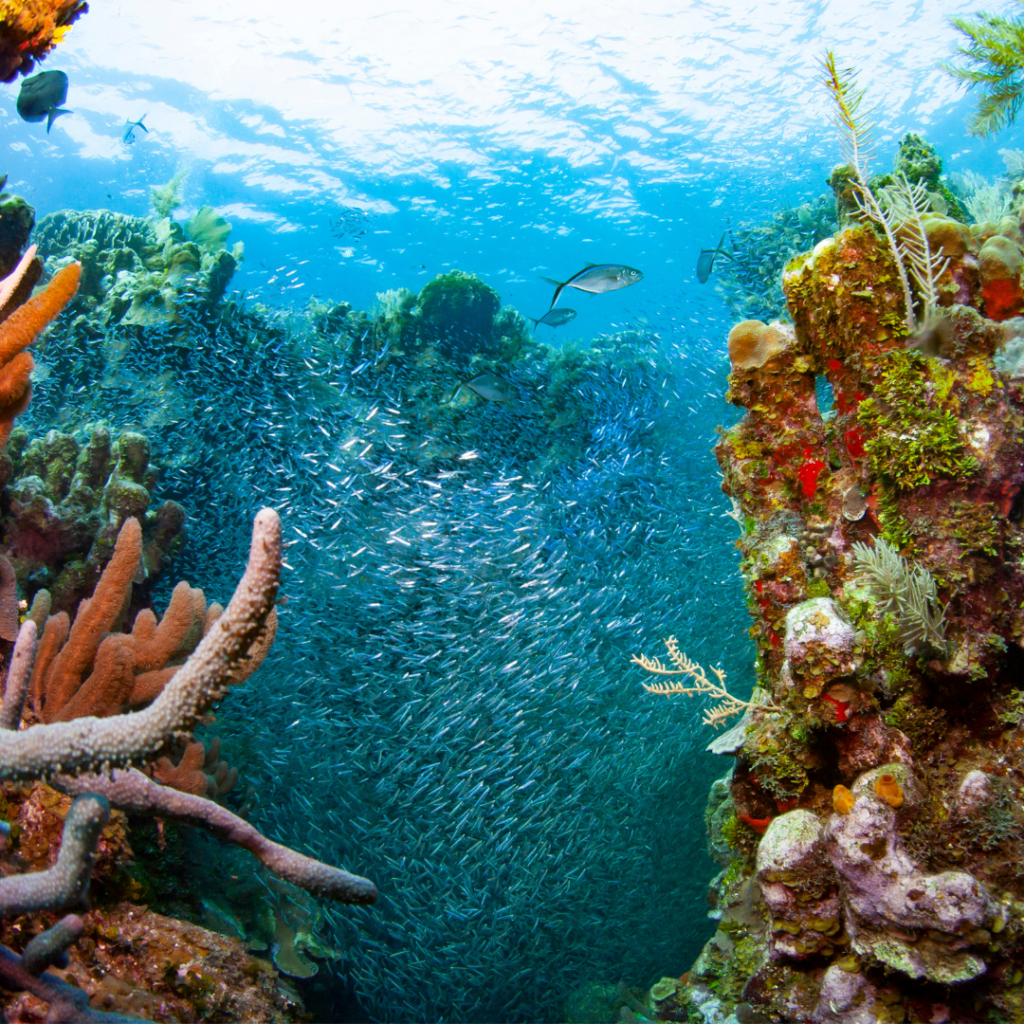
Prioritize the protection of diverse collections of reefs
Make decisions from a thermal perspective. Corals that can survive on warmer, degraded reefs may provide key sources of heat-tolerant larvae!
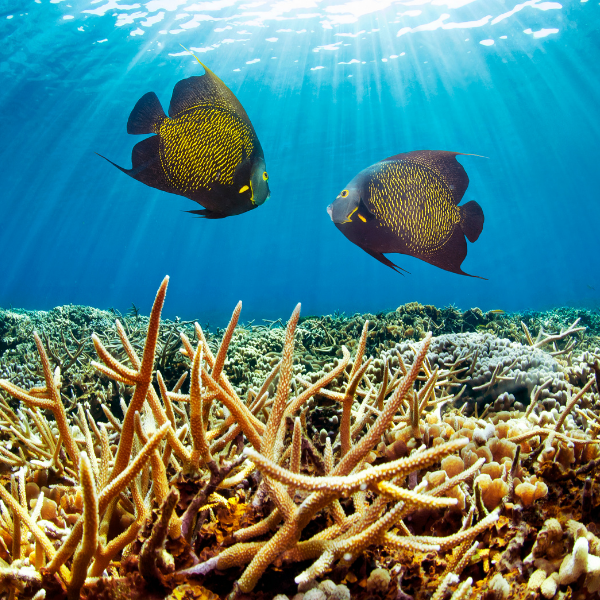
Follow existing best practices
Do this by effectively protecting large and well-connected reef areas.
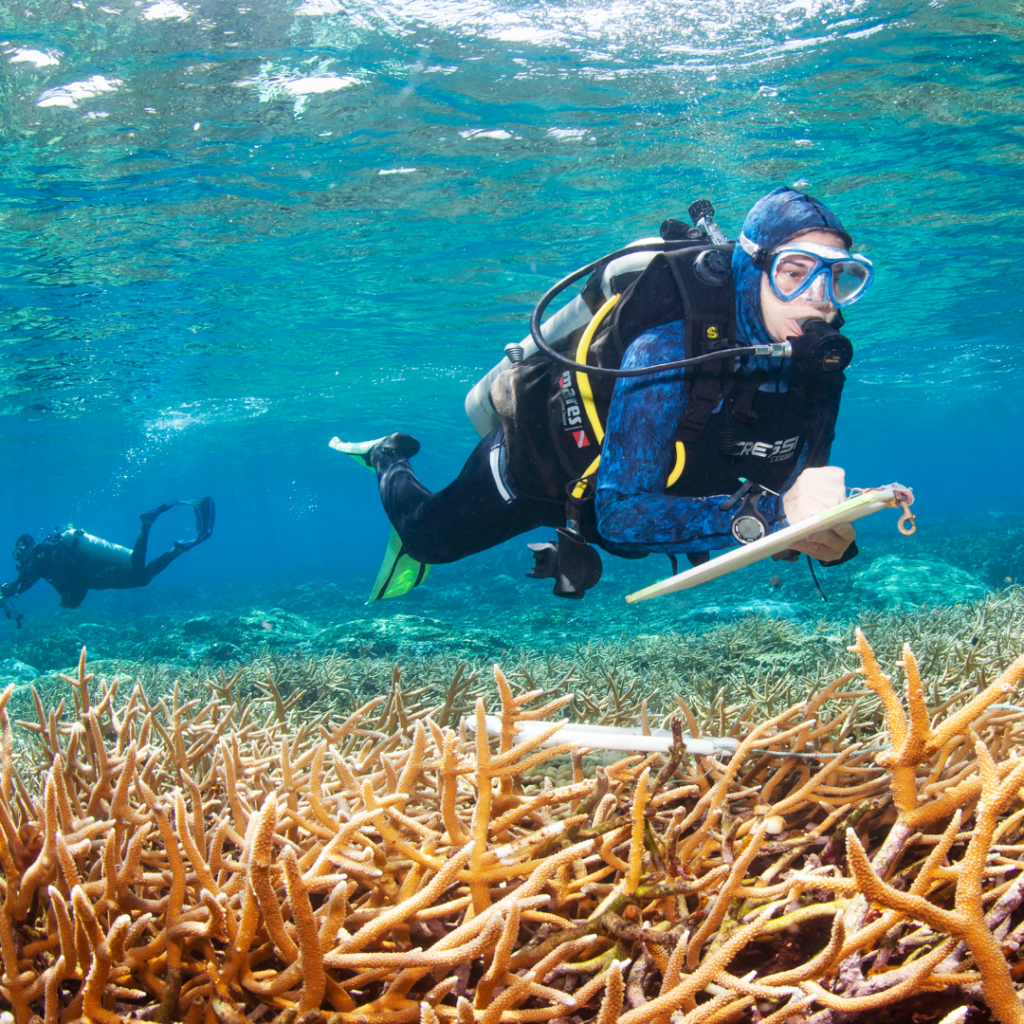
Manage local stressors
Continue to manage local stressors, especially land-based sewage pollution, to maximize the chances of coral reef survival and adaptation.
Coral conservation in a warming world must harness evolutionary adaptation
To facilitate evolutionary adaptation to climate change, we must protect networks of coral reefs that span a range of environmental conditions — not just apparent ‘refugia’.… Continue Reading →
Assessing the potential for demographic restoration and assisted evolution to build climate resilience in coral reefs
Interest is growing in developing conservation strategies to restore and maintain coral reef ecosystems in the face of mounting anthropogenic stressors, particularly climate warming and associated mass bleaching events…… Continue Reading →
Whitepaper: Forecasting Climate Sanctuaries for Securing the Future of Coral Reefs
We highlight the environmental and biological factors that predict the ongoing climate impactsof coral reefs, and explore the potential for adaptation, acclimation and stress tolerance of coral reefs.… Continue Reading →
Evolution and connectivity influence the persistence and recovery of coral reefs under climate change in the Caribbean, Southwest Pacific, and Coral Triangle
Here, we used eco-evolutionary simulations to examine coral adaptation to warming across reef networks in the Caribbean, the Southwest Pacific, and the Coral Triangle. We found that evolution can be critical in preventing extinction and facilitating the long-term recovery of coral communities in all regions.
Quantifying global potential for coral evolutionary response to climate change
Using a global ecological and evolutionary model of competing branching and mounding coral morphotypes, this study shows symbiont shuffling was more effective than symbiont evolution in delaying coral-cover declines, but stronger warming rates outpace the ability of these adaptive processes and limit coral persistence.
Management for network diversity speeds evolutionary adaptation to climate change
This pioneering study is one of the first to demonstrate that management that takes evolution and adaptation into account can help rescue coral reefs from climate change. The results show that smart decisions to protect reefs today lead to the conditions that can help corals adapt to rising temperatures.
Who Should Pick the Winners of Climate Change?
(Webster et al. 2017) Conservation strategies that focus on predicted winners risk undervaluing the balance of biological diversity from which climate change winners could otherwise emerge. Drawing on ecology, evolutionary biology, and portfolio theory, we propose a conservation approach designed to promote adaptation that is less dependent on uncertain predictions.